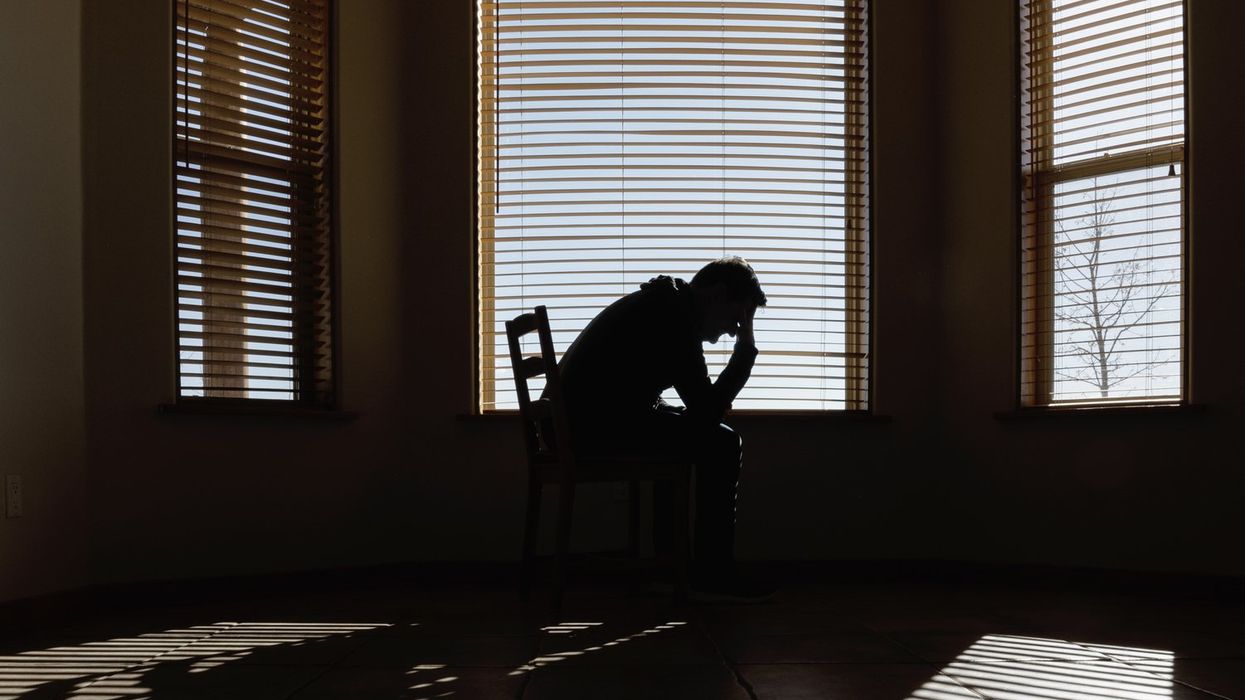We are a nation unmoored from itself, where loneliness spreads faster than any virus and gun violence stalks our communities with metronomic certainty. The numbers, at this point, are almost numbing. But the ache they represent is not.
Loneliness is an epidemic. Once considered a private crisis, loneliness has metastasized into a public health catastrophe. Former U.S. Surgeon General Vivek Murthy believed loneliness "as dangerous as smoking fifteen cigarettes a day." We keep scrolling, liking, streaming, and yet so many of us are left feeling profoundly alone. Aloneness is not simply a byproduct of excessive technology or social media engagement, though these play their part. Unfortunately, Americans worship individualism, giving way to the fraying of communal threads. To paraphrase my friend, Eric Liu, executive leader of Citizen University, we are witnessing the fading of shared spaces and the thinning of civic ties and bonds of mutual affection. Thus, as we drift apart, violence fills the space more and more.
Gun violence in America is no longer an aberration—it's an ambient fact of life. Mass shootings title headlines, but they are only the tip of the iceberg. Every day, guns claim the lives of nearly 130 people in the U.S., many by their own hand. Suicides account for a significant number of all deaths by firearms. These same instruments, revered as a symbol of liberty, are for thousands the tool of self-harm.
Loneliness and gun violence are twin symptoms of a deeper malaise. When people feel unseen, unheard, and undervalued, the risk of self-harm and violence against others grows. What's more, the easy access to firearms transforms fleeting moments of pain into permanent tragedy.
So, where, in our so-called democracy, is the response? Here is where the American project falters most conspicuously. We like to believe that ours is a government "of the people, by the people, for the people." Yet, on issues that cut closest to the bone—mental health, gun safety, the basic architecture of belonging—our representatives seem frozen in amber. Poll after poll shows broad popular support for reasonable gun laws, for expanded mental health care, for robust investment in community life. And yet, the legislative gears grind to a halt, jammed by monetary debates, polarization, and a kind of learned helplessness.
The result is a country that professes inalienable rights—life, liberty, and the pursuit of happiness—but fails to secure them for millions. If suicide is the tenth leading cause of death in the U.S., if gun violence is the leading cause of death for children and teens, if loneliness is eroding our lifespans, what does it mean to say we are free? What is the value of liberty in a society where so many are left unprotected from despair and violence?
There's a word for this kind of impotence: abdication. It is not, as some would like to pretend, merely a matter of "gridlock" or "partisan bickering." It is a choice—a refusal to wield the tools of democracy to secure “the good life” for all. The failure of policy does not just evidence abdication; it reveals a lack of imagination and a diminished sense of what is possible and promised. We should not allow ourselves to become hostage to this reality. The American story, at its best, is one of collective resolve and willingness to look honestly at our brokenness, while daring to build.
First, we must refuse to accept loneliness as a private problem. It is a civic emergency, and it demands civic solutions. That means rebuilding the public square—not just metaphorically but literally. Invest in libraries, parks, community centers, and transit. Support organizations that foster connection, not just consumption. Reclaim the idea that the government can be an engine of belonging, not just an administrator of transactions.
Second, we must treat gun violence as a public health crisis, not a partisan wedge. That means universal background checks, safe storage laws, red flag policies, and restrictions on weapons of war—the basics, supported by the vast majority of Americans. However, it also means investing in upstream solutions, such as accessible mental health care, trauma-informed education, and economic policies that reduce desperation and isolation.
Third, we must demand more of our representatives—and of ourselves. Democracy is not a spectator sport. If those in power refuse to act, we must make it impossible for them to do otherwise. That means organizing, voting, protesting, and running for office. But it also means practicing democracy in our daily lives: showing up for neighbors, joining local boards, and breaking bread with those unlike ourselves.
Above all, we must reclaim a sense of agency—not just as individuals but as a nation. The sovereignty of civil society is not a given; it is something we must continually assert, defend, and renew. It requires that we see one another, not as threats or strangers, but as fellow travelers, bound together by fate and choice.
We are a country where the right to life, liberty, and happiness is more than a slogan. Where loneliness is not a death sentence, and where our democracy is measured not by its promises but by its practices. A nation that is honest about its failures. Audacious in our hopes. A society learning and yearning to belong to one another. One nation under God, indivisible with liberty and justice for all.
Rev. Dr. F. Willis Johnson is a spiritual entrepreneur, author, scholar-practioner whose leadership and strategies around social and racial justice issues are nationally recognized and applied.




















Trump & Hegseth gave Mark Kelly a huge 2028 gift